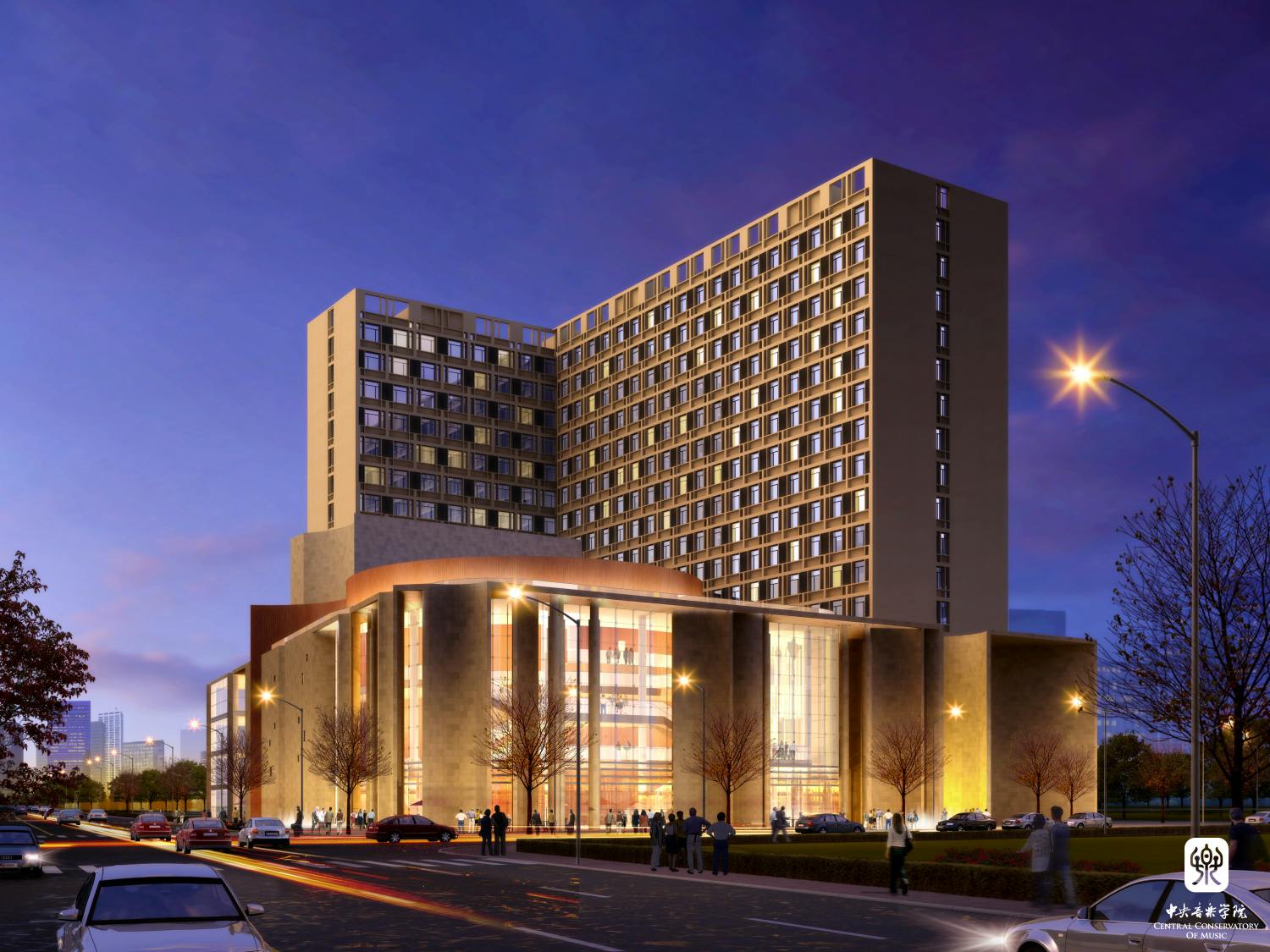Introduction
Established in 1949 and merged with the National College of Music and several other music educational institutions in China, the Central Conservatory of Music (CCOM) is a specialized Chinese institution of higher education for nurturing high-level music professionals. As China's only art academy listed among the nations leading universities supported by the state "Project 211" and a national “Double-First” construction university, the CCOM now consists of Departments of Composition, Musicology, Conducting, Piano, Orchestral Instruments, Traditional Chinese Instruments, and Voice and Opera, Music AI and Information Technology, as well as the Institute of Music Education, Violin Making Center, CCOM Middle School, Modern College of Music for Distant Learning, College of Continuing Education and Institute of Musicology, a Key National Base for Research in Humanities and Social Sciences designated by the Ministry of Education of China. It currently enrolls 1,543 undergraduate students and 633 graduate students. Functioning as a national center of music education, composition, performance, research and social promotion of music, the CCOM is a world-renowned institute of music that represents the highest caliber of music education in China, offering a comprehensive range of specialized programs.
The CCOM is a magnet for musical talents from all over the world. During its over 70 years of development, it has proudly maintained a strong team of faculty and administrative staff, including a number of outstanding specialists and scholars in music education, composition, performance, and research. Many aspiring young musicians have been attracted to further their professional training at CCOM. Dozens of thousands of talented music students, including hundreds of international students, have been successfully trained. Among them, many have become internationally renowned composers, musicologists, music educators, performing artists, as well as leaders and important members in specialized art and cultural institutions.
While carrying on the diverse musical heritage of China, the CCOM is actively absorbing the essence of various music cultures across the world, embracing different artistic elements with an open mind. Facing a time of increasing opportunities, the CCOM will continue its efforts to become a world-leading conservatory with top-notch programs in music education, dedicated to preparing future generations of music professional leaders for the development of art in China, and to bringing China's vibrant music culture to the world.
About Beijing
Beijing, Jing for short, is a metropolis in northern China and the capital of China. Lying 70 mi (102 km) west of the Bohai Sea, it borders Hebei Province to the north, west, south, and for a small section in the east and Tianjin to the southeast. This city is a major transportation hub, with dozens of railways, roads, and motorways passing through the city. It is also the destination of many international flights arriving in China. It is regarded as the political, educational, and cultural center of China.
With a history of more than 3,000 years, it has been an integral part of China's history. There is scarcely a major building that doesn't have at least some national historical significance. Being the capital of China for about 850 years, it is one of the Four Great Ancient Capitals of China, offering China's most wonderful array of attractions. No other city in the nation attracts more travelers.
As the saying goes, one who fails to reach the Great Wall is not a true hero. Without visiting the Great Wall, no trip to this city or the country is complete. The Great Wall of China is a series of stone and earthen fortifications in northern China, built, rebuilt and maintained between the 5th century BC and the 16th century to protect the northern borders from Xiongnu attacks during various successive dynasties.
At the heart of this city is the Forbidden City, home to the emperors of the Ming and Qing dynasties, the largest palace complex of the nation and the world. The Forbidden City also hosts the Palace Museum with imperial collections of Chinese art. The Forbidden City is, by any measure, a must-see site in the city.
Siheyuan (Courtyard houses) and hutong (alleys) only grow in charm as they decrease in size. Courtyard houses are typical of houses of northern China, a full embodiment of the Chinese philosophy of "the unity of man and nature." Courtyards visitors can see today were mainly built from the Qing Dynasty to the 1930s. Hutong is the most typical type of old lanes. More than 7,000 alleys are scattered throughout the city, each has a story to tell. Those narrow lanes twist through older sections and form an open-air museum where you can happily wander aimlessly for hours. To experience the old Beijing, a Hutong tour is a must.
Old One is wonderful and amazing while New One is fantastic and exciting. Economic reform and the preparation of the 29th Olympic Games have accelerated the pace and scale of change and outfitted the city with a sense of modernity. This city nowadays offers an endless mixture of theatres, discos, bars, business centers, all kinds of restaurants and shopping malls that will delight visitors.
798 Art District, the exhibition center of modern Chinese art, hosts the annual 798 art festival. The International Music Festival was initiated in 1998 and held in the city each year. This city boasts more than a hundred shopping malls, including the traditional shopping areas like Wangfujing, Qianmen Dashilan, and Xidan and the newly emerged business areas like Guomao, Oriental Xin Tian Di and Zhongguancun Square. If you search for international trade clothing, you can not miss Xiushui and Yaxiu.
Want a drink in the evening? Just find a bar and relax. This city has many bar streets and bar areas with colorful neon lights calling for those bar lovers of the night. Besides drinking in a bar, visitors can go to listen to the Peking Opera at night. Peking Opera is a form of traditional Chinese theatre which combines music, vocal performance, mime, dance, and acrobatics. It is extremely popular in the capital and has come to be regarded as one of the cultural treasures of China.
About the Campus
The conservatory campus covers 53,000 square metres in the centre of Beijing comprising a complex of traditional and modern buildings. The Conservatory Music Library accommodates over 500,000 volumes and is the largest of its kind in China. The conservatory also owns over 500 pianos and a large number of other musical instruments; its educational facilities include an electronic music studio with advanced recording and video equipment and a violin workshop.
Show less



.png)






